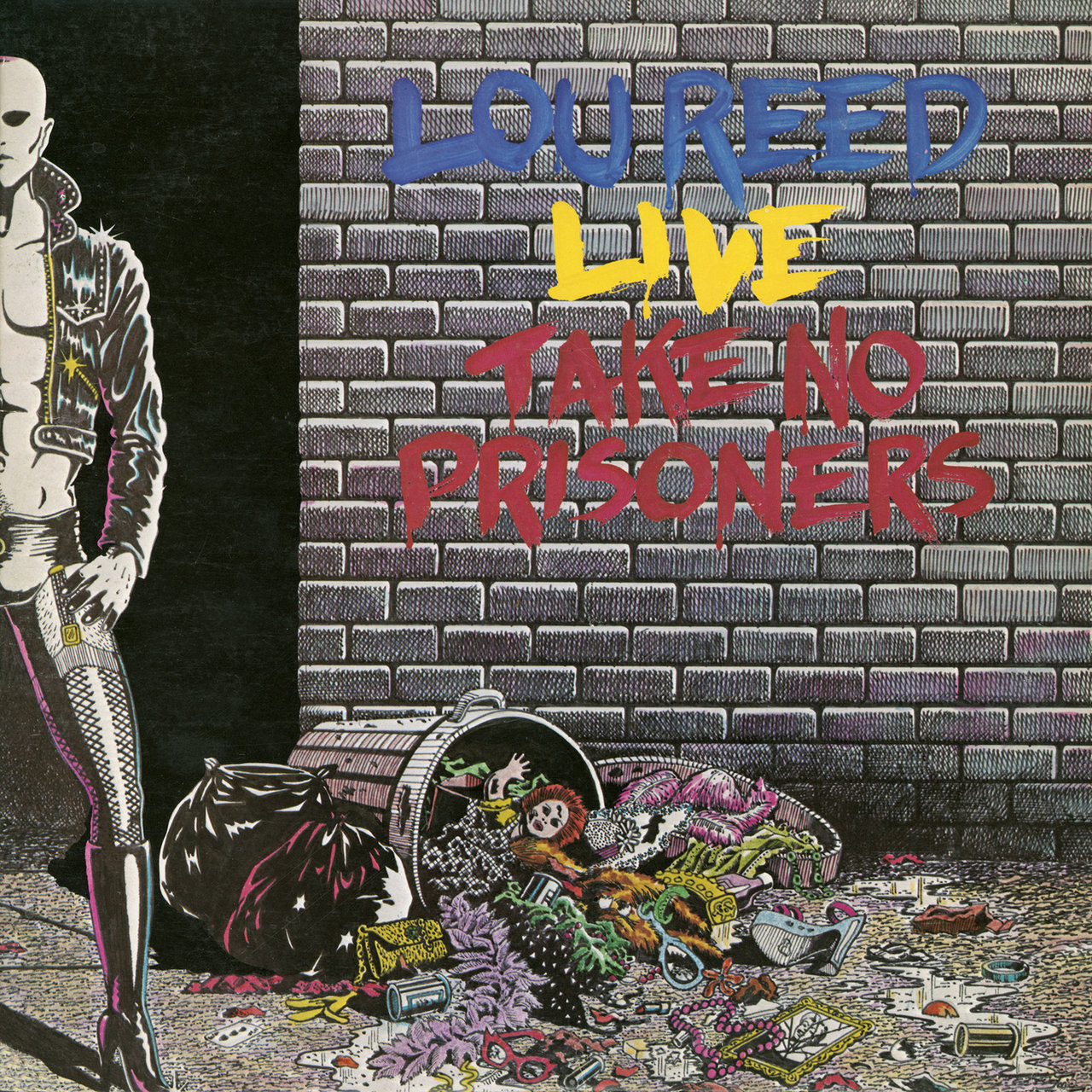Every Audiophile Needs This Lou Reed Live Album!
Lou Reed talks, and talks, and talks... in glorious binaural sound!
As I paid $25 for an original US copy of Lou Reed’s 1978 live album Take No Prisoners, my local record shop owner said, “Enjoy it, man, I’ve never seen this record before. Plus it’s a promo.” Indeed it is: not only is there a sticker from Arista denoting it a DJ copy originally loaned for promotional use only, but there’s also a bold red hype sticker reading “SPECIALLY PRICED TWO-RECORD SET—All the raw excitement of Lou Reed-Live,” with quotes from the Chicago Sun-Times, the Los Angeles Times’ Robert Hilburn, Newsday, and The New York Times’ John Rockwell, who wrote, “Mr. Reed’s credentials are unshakeable… as inspiration for most of the movements that have taken place in underground New York rock-and-roll.”
Following a tour behind 1978’s Street Hassle (B+ in The Village Voice), Lou Reed performed a five-night residency at New York’s 400-capacity The Bottom Line and recorded it using stereo binaural technology designed by Manfred Schunke (Street Hassle also used this gear) and hooked up to the Record Plant Mobile recording truck. Reed, of course, was one of the greatest artists and musical provocateurs of his era (and of all time, for that matter) with an especially stellar backing band here, but he was also an exacting audiophile perfectionist. As a result, Take No Prisoners is one of the most realistic sounding recordings you’ll ever hear. It will also clear the room at any hi-fi show.
Take No Prisoners is the perfect Lou Reed live album—not because it has extended versions of several catalog highlights, but because it brilliantly documents his antagonistic persona (partly real, but also a bit of an act that conveniently doubled as a protective mechanism against media). Of Reed’s post-Velvet Underground works, critics generally prefer his more accessible classics—Transformer, Berlin, New York—but to me, post-VU Lou Reed is Metal Machine Music, his Metallica collaboration and final record Lulu, and this. These records are his most abrasive, uncompromising, and unforgiving; he’s not trying to please anyone at all, and on these albums, generally for the better.
Some copies of Take No Prisoners, which hasn’t seen a vinyl reissue in decades, come with a sticker that reads, “THIS RECORD IS OFFENSIVE.” Rather than presenting straightforward renditions of “Sweet Jane,” “Walk On The Wild Side,” and “I’m Waiting For The Man,” Lou uses those songs as a platform for his nonstop ranting and complaining, which is sharp, comedic, and definitely not politically correct by anyone’s standards (“‘Are you political Lou?’ ‘Political about what? Give me an issue and I’ll give you a tissue… you can wipe my ass with it.’”). On some of these songs, he hardly sings the actual song. Case in point: the 10-minute opening recording of “Sweet Jane,” where his band keeps playing as he goes on about Barbara Streisand, the Academy Awards, and people from Wyoming. “Fuck short people and tall people, I like middle people! People from Wyoming. You ever meet someone from Wyoming? Not me….”
The setting helps quite a bit; Reed was in a small club back in his home city, with a very flexible backing band and an audience whose energy obviously matched his. While the shows were designed to be around two hours long, sometimes they’d stretch to nearly four, even after he kept everyone waiting outside after the scheduled start time. When he sings “He’s never early, he’s always late” on “I’m Waiting For The Man,” a seemingly irritated audience member with excellent timing shouts back, “So are you, Lou!”
When Lou decides to play the songs normally—“Satellite Of Love” and “Pale Blue Eyes,” for example—the band carries them while he sounds less engaged (let’s face it, he’s probably speeding the entire time here). Take No Prisoners’ indisputable highlight is the 17-minute “Walk On The Wild Side,” where he spends almost the whole song rambling about actor Joe Dallesandro (“Little Joe is an idiot […] You talk to him for two minutes and you remember he has an IQ of 12 […] he can barely tie his shoelaces, and I know Einstein couldn’t tie his shoelaces but it’s not like that!”), Candy Darling (a Warhol superstar and transgender woman who inspired “Candy Says” and “Walk On The Wild Side”—“I really miss Candy, and I didn’t even know her that well. I’m such a scam artist.”), writing a song called “Walk On The Wild Side,” and music critics: “What does Robert Christgau do in bed? Y’know, is he a toe-fucker? […] Christgau is like an anal-retentive, nice little boxes, ‘B+.’ Can you imagine working for a fucking year and you got a B+ from an asshole in The Village Voice?” Christgau gave Take No Prisoners a C+, writing, “I thank Lou for pronouncing my name right.”) The New York Times’ John Rockwell isn’t spared either: “You know how heavy it is to get reviewed by Rockwell and he says you’re intelligent? Fuck you! I don’t need you to tell me that I’m good!” Artists complaining about critics is almost always absurdly immature, but Reed’s grievances somehow hold up, maybe because it reveals some deep insecurity rather than the average sore whining.
No matter what you think of Lou Reed’s constant talking, Take No Prisoners is a worthwhile purchase for the sound quality alone. The binaural recording has spectacular realism: listen on headphones and you’re there, or listen on speakers and you’re still right there, at The Bottom Line, surrounded by Reed and his audience. The original US vinyl (my copy is from the Columbia Santa Maria plant), mastered by Ted Jensen at Sterling Sound and supervised by Manfred Schunke (who provided the binaural technology) and Lou himself, is inconveniently auto-coupled and has some inner groove distortion, but it’s still excellent. (The current hi-res remaster, done by Vlado Meller with Reed and Hal Willner, is alright, but with more compression and a lessened binaural atmosphere.) While this rarely appears in the shops, it’s not in terribly high demand so you should be able to find a clean copy for $30 or less. And when you do, take it to a hi-fi show.









































.png)








